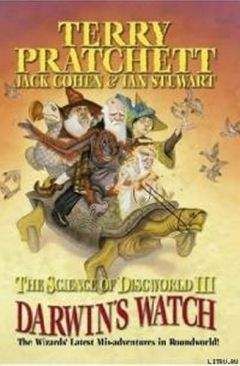America. New York: Oxford University Press.
Frank, R. H. 1988. Passions within reason. New York: W. W. Norton.
Frank, S. A. 1998. Foundations of social evolution. Princeton: Princeton University Press.
Frazer, J. G. 1890. The golden bough. London and New York: Macmillan.
Fukuyama, F. 1995. Trust. New York: The Free Press.
Gadagkar, R. 1997. Survival strategies. Cambridge, Mass: Harvard University Press.
Gaulin, S. J. C., and D. H. McBurney. 2001. Psychology: An evolutionary approach. Upper Saddle River, N.J.: Prentice Hall.
Gigerenzer, G., and U. Hoffrage. 1995. How to improve Bayesian reasoning without instruction. Psychological Review 102:684–704.
Godin, J.-G., and L. A. Dugatkin. 1996. Female mating preference for bold males in the guppy. Proceedings of the National Academy of Sciences, USA 93:10262–10267.
Goodenough, U. 1998. The sacred depths of nature. Oxford: Oxford University Press.
Gould, S. J. 1989. Wonderful life. New York: W. W. Norton.
Gould, S. J. 1999. Rock of ages: Science and religion in the fullness of life. New York: Ballantine.
Gould, S. J., and R. C. Lewontin. 1979. The spandrels of San Marco and the Panglossian paradigm: A critique of the adaptationist program. Proceedings of the Royal Society of London, Series B, Biological Sciences 205:581–598.
Guthrie, S. E. 1995. Faces in the clouds: A new theory of religion. Oxford: Oxford University Press.
Hamilton, W. D. 1964. The genetical evolution of social behavior: I and II. Journal of Theoretical Biology 7:1–52.
Hamilton, W. D. 1975. Innate social aptitudes in man: An approach from evolutionary genetics. In Biosocial anthropology, ed. R. Fox, 133–53. London: Malaby Press.
Hamilton, W. D. 1996. The narrow roads of gene land. Oxford: W. H. Freeman/Spektrum.
Hammer, M. F., A. J. Redd, E. T. Wood, M. R. Bonner, H. Jaranazi, T. Korafet, S. Sanachiora-Benerocetti, A. Oppenheim, M. A. Jobling, J. Jenkins, H. Ostrer, and B. Bonnie-Tamir. 2000. Jewish and Middle Eastern non-Jewish populations share a common pool of Y-chromosome biallelic haplotypes. Proceedings of the National Academy of Sciences, USA 97:6769–6774.
Hart, K. E. 1999. A spiritual interpretation of the 12-steps of Alcoholics Anonymous: From resentment to forgiveness to love. Journal of Ministry in Addiction and Recovery 6:25–39.
Hartung, J. 1995a. Love thy neighbor: The anatomy of in-group morality. Skeptic 3 (November): 86–99.
Hartung, J. 1995b. Review of “A people that shall dwell alone: Judaism as a group evolutionary strategy.” Ethology and Sociobiology 16:335–342.
Harvey, W. [1628] 1995. The anatomical exercises. New York: Dover.
Hauser, M., and S. Carey. 1998. Building a cognitive creature from a set of primitives: Evolutionary and developmental insights. In The evolution of mind, ed. D. D. Cummins, 51–106. Oxford: Oxford University Press.
Hayek, F. 1988. The fatal conceit. London: Routledge.
Heckathorn, D. D. 1990. Collective sanctions and compliance norms: A formal theory of group-mediated social control. American Sociological Review 55:366–384.
Heckathorn, D. D. 1993. Collective action and group heterogeneity: Voluntary provision vs. selective incentives. American Sociological Review 58:329–350.
Hempel, C. G. 1959. The logic of functional analysis. In Symposium on sociological theory, ed. L. Gross. New York: Harper and Row. Reprinted in Martin and McIntyre 1994, 349–376.
Herre, E. A. 1999. Laws governing species interactions? Encouragement and caution from figs and their associates. In Levels of selection in evolution, ed. L. Keller, 209–237. Princeton: Princeton University Press.
Hesselink, I. J. 1997. Calvin’s first catechism: A commentary. Louisville, Ky.: Westminster John Knox Press.
Heyes, C., and L. Huber, eds. 2000. The evolution of cognition. Cambridge, Mass.: MIT Press.
Hinde, R. 1999. Why gods persist: A scientific approach to religion. New Brunswick, N.J.: Routledge.
Hirschi, T., and R. Stark. 1969. Hellfire and delinquency. Social Problems 17:202–213.
Hirshleifer, J. 1977. Economics from a biological viewpoint. Journal of Law and Economics 20:1–52.
Hodgson, G. M. 1993. Economics and evolution. Cambridge, England: Polity Press.
Hoge, D. R., and D. A. Roozen. 1979. Technical appendix to understanding church growth and decline, 1950–1978. Hartford, Conn.: Hartford Seminary Foundation.
Houde, A. E., and M. Hankes. 1997. Mismatch between female preference and expression of male color pattern in some guppy populations. Animal Behavior 53:353–361.
Howell, S. 1984. Society and cosmos: Chewong of peninsular Malaya. Singapore: Oxford University Press.
Hull, D. 1973. Darwin and his critics. Chicago: University of Chicago Press.
Huxley, T. 1863. Evidence as to man’s place in nature. London: Williams and Norgate.
Iannaccone, L. R. 1992. Sacrifice and stigma: Reducing free-riding in cults, communes, and other collectives. Journal of Political Economy 100:271–291.
Iannaccone, L. R. 1994. Why strict churches are strong. American Journal of Sociology 99:1180–211.
Iannaccone, L. R. 1995. Voodoo economics? Reviewing the rational choice approach to religion. Journal for the Scientific Study of Religion 34:76–89.
Ingle, H. L. 1994. First among friends: George Fox and the creation of Quakerism. New York: Clarendon.
Jacob, F. 1977. Evolution and tinkering. Science 196:1161–1166.
James, W. 1902. The varieties of religious experience. New York: Longmans, Green.
Johnson, P. 1976. A history of Christianity. New York: Atheneum.
Kaplan, H., and K. Hill. 1985a. Hunting ability and reproductive success among male Ache foragers. Current Anthropology 26:131–133.
Kaplan, H., and K. Hill. 1985b. Food sharing among Ache foragers: Tests of explanatory hypotheses. Current Anthropology 26:223–245.
Kaplan, H., K. Hill, and A. Hurtado. 1984. Food sharing among the Ache hunter-gatherers of eastern Paraguay. Current Anthropology 25:113–115.
Katz, J. 1961. Tradition and crisis: Jewish society at the end of the middle ages. New York: Free Press of Glencoe.
Kelly, D. M. 1972. Why conservative churches are growing: A study in the sociology of religion. Macon, Ga.:





